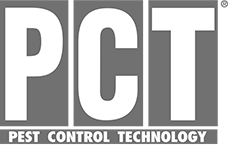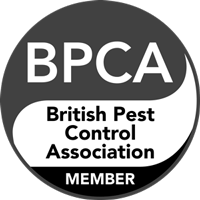Table of Contents
Rats are known carriers of diseases. For example, throughout history, they are blamed for the most devastating outbreaks of the bubonic plague. In addition, they are thought to be responsible for more deaths than all wars in the past 1000 years combined.
It is estimated that for every 1 person in the UK, there are 2 rats! With the UK rat population continually growing, you may be more at risk of contracting a disease from a rat than you initially thought.
In this article, we discuss how you can catch diseases from rats, what these diseases are and how to treat them, as well as information on removal and prevention of rat infestations on your property.
To keep your family safe, continue reading…
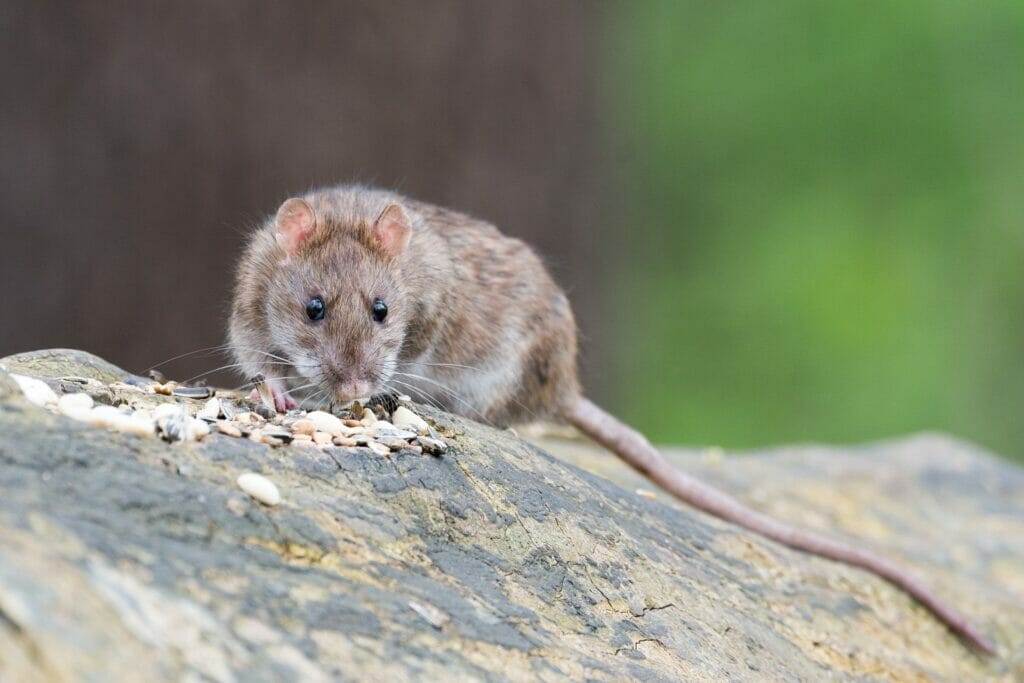
How can you catch diseases from rats?
We’ve established that rats can carry many diseases, but how are they transmitted to humans? Unfortunately, there is an extensive list of ways that rats can infect us via the transfer of dangerous pathogens.
- Biting. If you are bitten by a rat carrying one or multiple diseases, these will be transferred directly into your bloodstream via the microorganisms in their saliva.
- Scratching. The same principle applies to scratches from rats. Any pathogens they may be carrying will be able to directly enter your bloodstream via the cut.
- Excrement. Direct contact with rat urine, faeces, or saliva are guaranteed ways to contract a rodent disease.
- Inhalation. Inhaling particles that have been contaminated by infected rodents. This includes breathing in dust particles that contain rat urine or aerosolised particles generated when you sweep a space that has been home to rodents.
- Handling. Picking up or directly touching rodents carrying diseases.
- Consuming. Drinking water contaminated by rat urine or eating food that a rat may have walked across or defected on.
- Second-hand contact. Pets can often contract diseases from rats if they play with them or try to eat them. They will then unintentionally pass on any parasites they caught to you.
As well as this long list of transmission methods, rats and most rodents commonly act as host bodies for ectoparasites and insects such as fleas, ticks, mites etc. These organisms will carry their own pathogens that are either passed onto the rat or directly to you via one of the above methods. If you notice signs of rats on your property, consider these transmission techniques and instead avoid contracting a potentially lethal disease by using our rat removal London service.
What diseases come from rats?
Leptospirosis
Leptospirosis is caused by the bacteria Leptospira. It affects both humans and animals but is relatively mild and usually easily treatable.
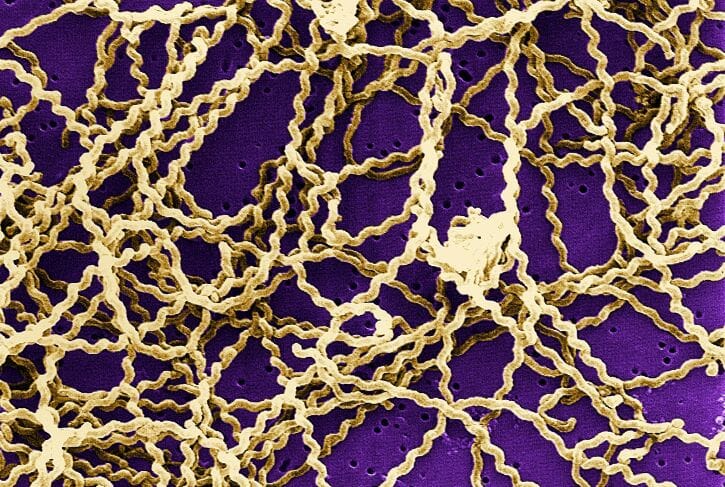
Symptoms
The time between exposure to the bacteria and displaying symptoms can take anywhere between two days to two weeks. However, the symptoms will often appear abruptly and may even occur in two phases.
The symptoms of Leptospirosis include, but are not limited to:
- Fever
- Headaches
- Chills
- Muscle pain
- Nausea & vomiting
- Diarrhoea
In some cases, people have been known to develop a rash and redness of the eyes.
Treatment
If you believe you have Leptospirosis, you should visit a healthcare professional as soon as possible. In most cases, the disease can be treated with a standard course of antibiotics. However, more drastic situations may require intravenous antibiotics to clear the infection faster and prevent further damage.
Weil’s Disease
Weil’s disease is a more severe version of Leptospirosis; 9 out of 10 people who contract the Leptospira bacteria will develop Leptospirosis, which can be cured relatively easily. However, 1 unfortunate person in those 10 will worsen and contract the full-blown Weil’s disease.
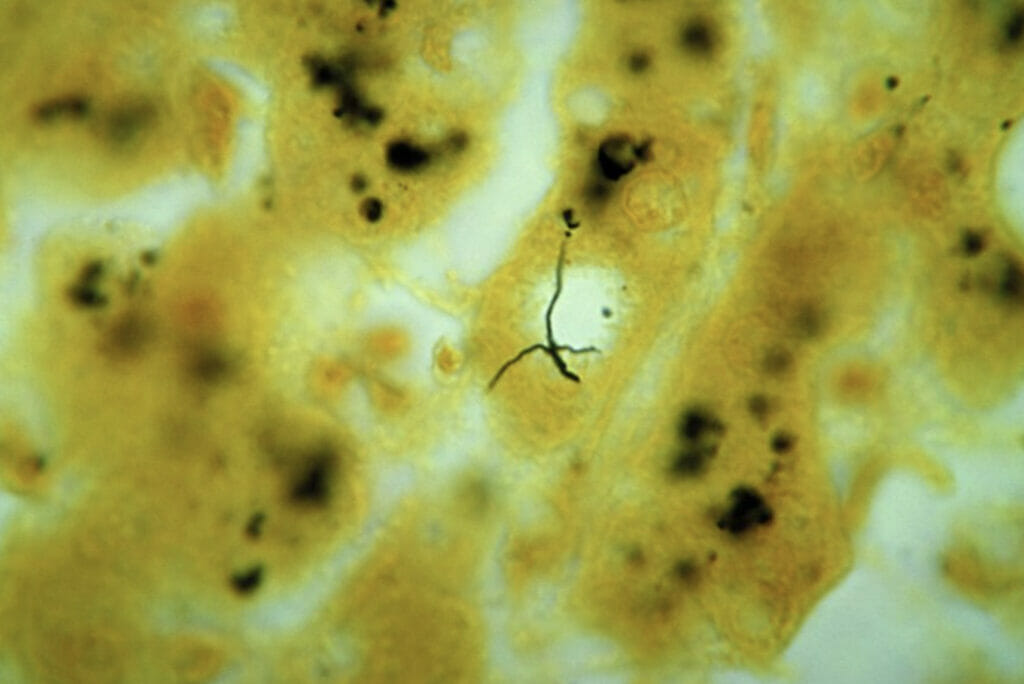
Symptoms
The more severe symptoms include:
- Jaundice
- A skin rash
- Muscle pains
- Fatigue
- Diarrhoea
Weil’s disease affects different organs in different people, but most commonly, it will damage the kidney and liver, where failure can occur.
Some people with Weil’s disease are unfortunate enough to develop symptoms similar to meningitis, whereas others find it damages their lungs, causing them to cough up blood. In rare cases, the heart will become inflamed and possibly lead to heart failure.
Treatment
Treatment of Weil’s disease is similar to Leptospirosis; however, the antibiotics will be given intravenously. Depending on the severity of the case, some patients will need to be in hospital for monitoring of their heart, lungs, liver, and kidneys.
Salmonellosis
Salmonellosis is caused by the bacteria Salmonella. Although most commonly contracted through eating contaminated food, the bacteria can also be passed between animals and humans. Children under the age of 5, people over 65, and people with weakened immune systems are generally at a higher risk of contracting the disease.
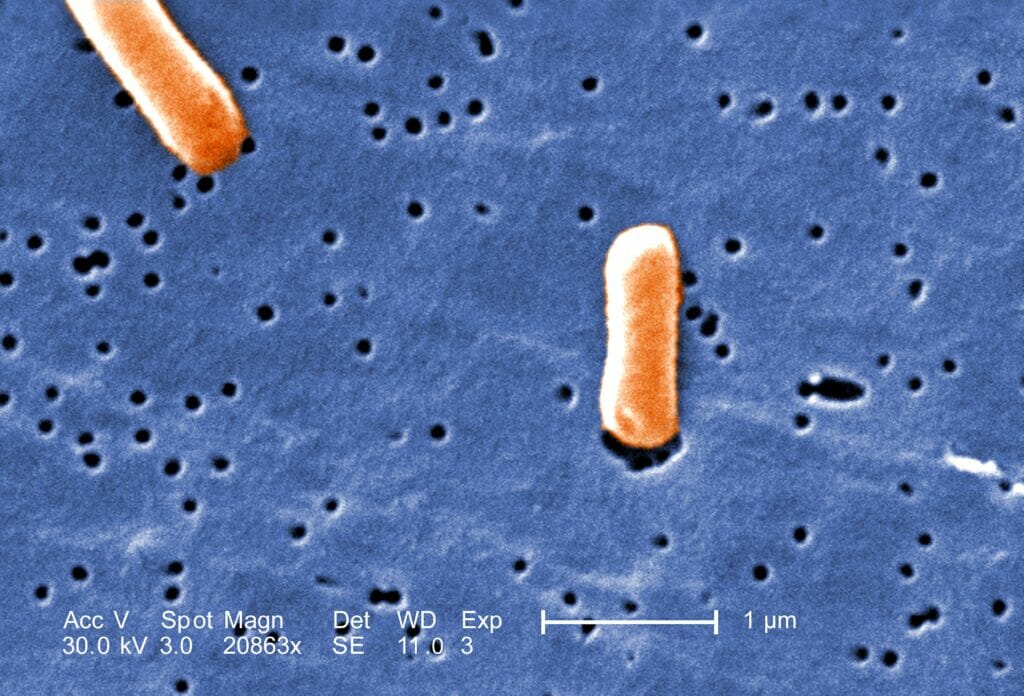
Symptoms
Symptoms of Salmonellosis include:
- Diarrhoea
- Vomiting
- Abdominal cramps
- Fever
These are the most common symptoms; however, higher-risk people may suffer further complications and health issues if they contract the virus.
Treatment
Typically people with Salmonellosis find that their symptoms resolve themselves after roughly a week. Although, more severe cases may take longer, and a hospital visit may be required for rehydration using intravenous methods following excessive diarrhoea. If you contract a Salmonella infection, keeping the fluids up and getting rest is essential. If the symptoms worsen or continue past a week, then seek the advice of a medical professional.
Hantavirus & HPS
Hantaviruses are a family of viruses carried by various rodents, predominantly rats. A hantavirus infection can develop into a severe and sometimes fatal respiratory disease known as Hantavirus Pulmonary Syndrome (HPS).
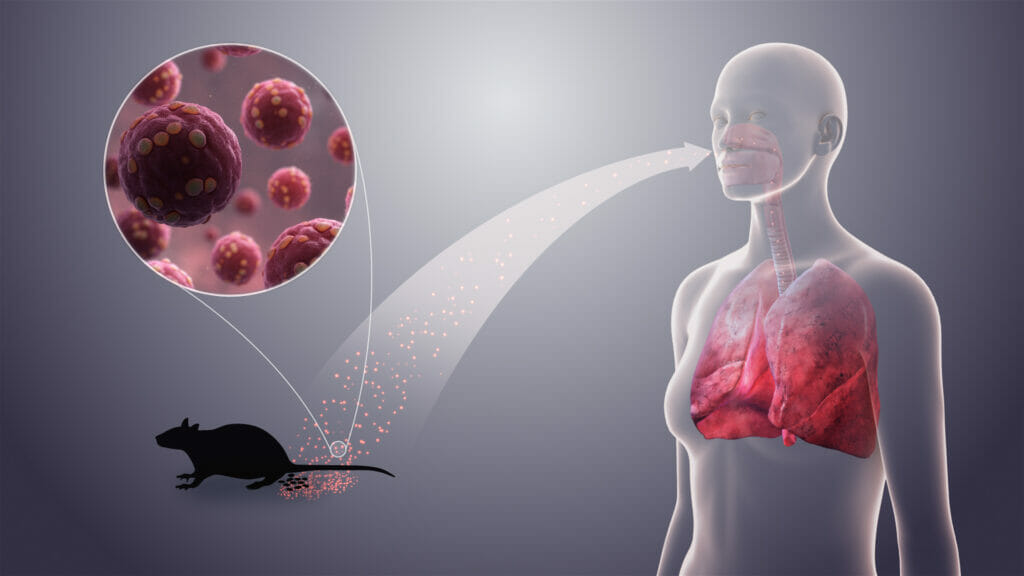
Symptoms
Initial symptoms of HPS include:
- Headaches
- Cough
- Fever
- Muscle aches
- Chills
- Abdominal pains
- Diarrhoea
- Dizziness
These may then develop into more severe symptoms, including:
- Shortness of breath
- Rapid heartbeat and breathing
- Chest pains
If the patient goes untreated, then symptoms will continue to worsen, and pneumonia-like symptoms can develop. In addition, fluid may accumulate in the lungs, resulting in further increased breathing difficulty.
Treatment
Unfortunately, there is no cure or vaccine for HPS. Patients suffering from hantavirus pulmonary syndrome require medical care as quickly as possible. Although there is no cure, individuals who are recognised early do have an increased chance of survival. They will be placed in intensive care and receive oxygen therapy and intubation to help support their bodies fight off the hantavirus.
HPS is rare, and regrettably, this means that hantavirus cases may initially be diagnosed as influenza or other more common respiratory issues. If you begin to display any symptoms listed above and have recently been in contact with rats, make sure you tell your doctor that rats may be the issue – it could save your life!
Rat-bite Fever
Rat-bite Fever or RBF is a disease caused by either Streptobacillus moniliformis or Spirillum minus – two bacterias commonly found on rats. If RBF isn’t treated swiftly and correctly, then it can be fatal.
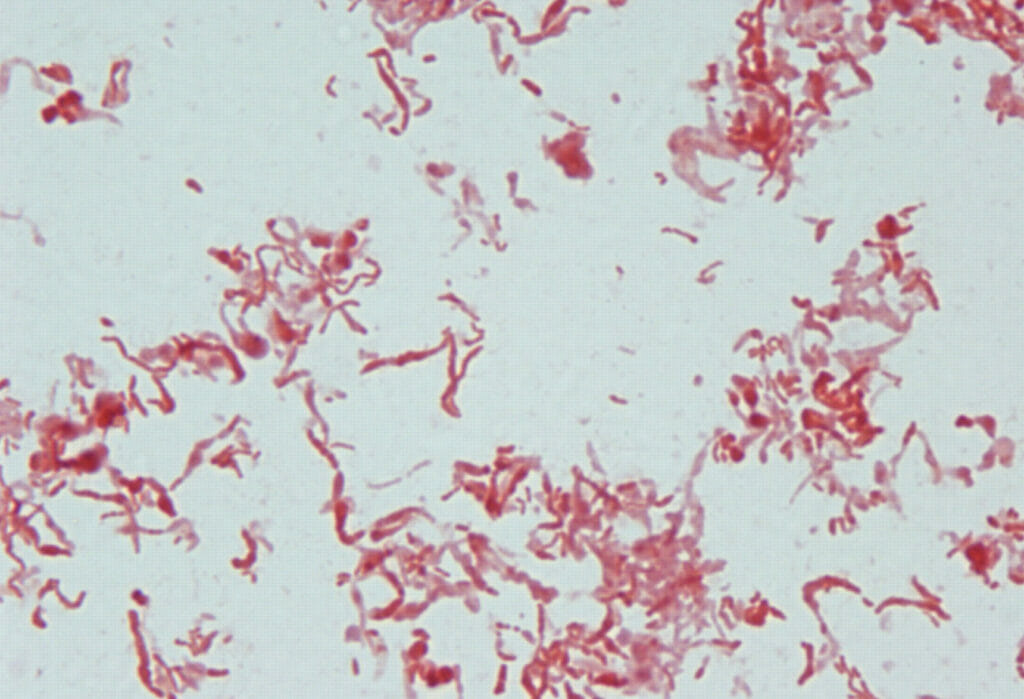
Symptoms
Symptoms of Rat-bite fever can appear as quickly as 3 days after contact with the bacteria; however, it can take up to 3 weeks to show in some cases. Common symptoms include:
- Headache
- Fever
- Vomiting
- Fatigue
- Skin rash
- Joint swelling
In severe cases, the following symptoms may develop:
- Pneumonia
- Meningitis
- Hepatitis
- Nephritis
- Endocarditis
- Internal abscesses
Treatment
Treating RBF is incredibly time dependant. The quicker you receive medical attention and begin a course of antibiotics, the more likely you are to avoid the more severe complications that can arise. Therefore, if you have been in contact with a rat and begin developing any of the above symptoms, visit your doctor immediately.
Plague
Rats and the plague are very closely associated. Although the disease famously killed millions of people during the Middle Ages, it isn’t as fatal today due to the widespread use of antibiotics. The plague is caused by the bacteria Yersinia Pestis.
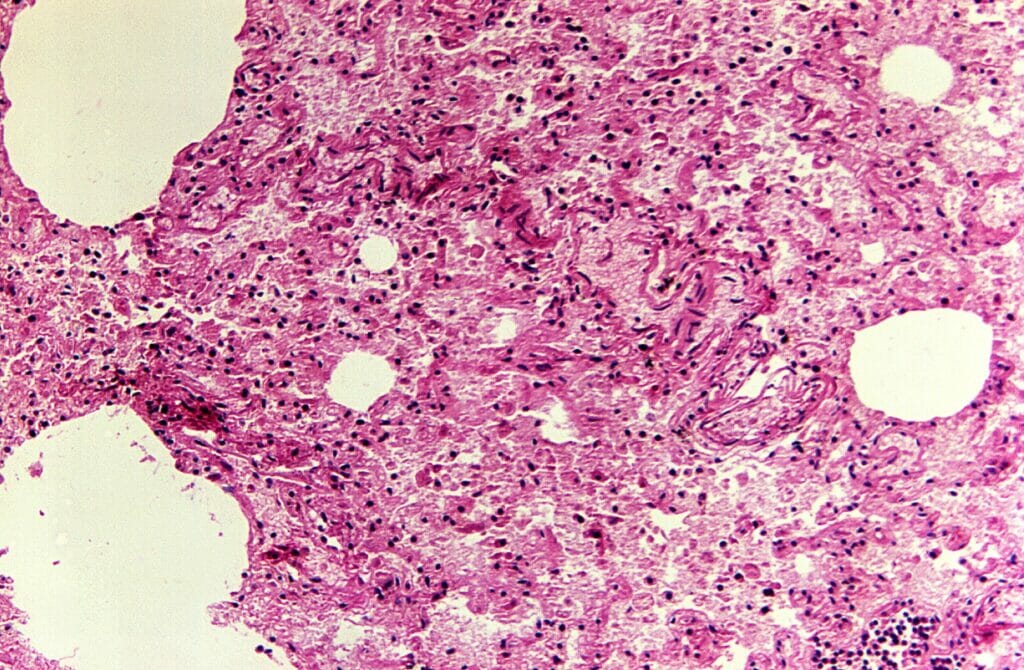
Symptoms
There are three main types of plague – bubonic, pneumonic, and septicemic and the resulting symptoms depend on the type.
Bubonic symptoms:
- Headache
- Fever
- Chills
- Swollen and painful lymph nodes
Septicemic plague:
- Fever
- Chills
- Extreme fatigue
- Abdominal pain
- Shock
- Bleeding in the skin and/or organs
- Skin turning black and dying, commonly found on the fingers, toes and nose
Pneumonic plague:
- Headache
- Fever
- Fatigue
- Rapidly develop pneumonia
- Shortness of breath
- Chest pains
- Cough
- Coughing up blood
Treatments
The plague is a dangerous illness, but the quicker it is found and treated using antibiotics, the higher your chance of survival. If you have been in contact with a rat and developed any of the above symptoms, visit your doctor or a healthcare professional immediately.

How to protect yourself against rat diseases
Rats, and the diseases they carry, create a huge health risk to you and your loved ones. The first step is identifying the problem. Check out our handy guide to identifying rats in your garden, as well as our handy manual for identifying rats and DIY rat control solutions.
Deterring rats
You can do several things to prevent rats from making your property their home; however, it is essential to remember that these are just preventative measures and not a solution to a rat infestation.
Here are some methods you can employ to deter rats from your property:
- Check for access points, even ones as small as a 1p coin. Take some time to explore both internal and external gaps and holes that rats could use to gain entry to your property.
- Keep bins clean and ensure they aren’t overflowing. Don’t leave food sources out for rats, as they will take this as their invitation to your home.
- Tidy the garden! Overgrown plants and shrubbery provide shelter and hiding places for rats. Remove debris that could be used for nest building also.
- Ensure food is stored away correctly and check crevices for crumbs. Removing potential food sources means the rats will move on and find somewhere else to nest.
Get rid of rats on your property
Too late for prevention? If rats have already decided to nest in your home or on your property, then they must be removed. Although there are some DIY options available, we strongly recommend using professional rat control services.
As we’ve explored above, rats are a considerable health and safety danger. Coming into contact with them or even inhaling dust they have contaminated could be fatal. So protect yourselves, your loved ones, your employees – whoever it may be, and call us today on 0204 566 5522. For commercial and domestic rat control, with same-day appointments and emergency 24-hour call outs, visit Integrum: London’s best pest control company.



